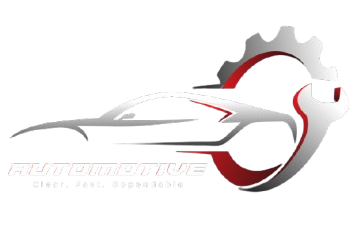Diesel engines work hard every mile. Yet, hidden faults can grow quietly until they stop you cold. Small issues often start in the fuel, air, or sensor systems. Then, they spread into bigger problems under heavy loads. With trained eyes and proven tools, a skilled tech reads the warning signs early. As a result, you save time, money, and stress. When schedules are tight, mechanic Detroit gives clear checks, fast feedback, and simple next steps. This article shows how routine inspections reduce risk, protect your engine, and keep you moving.
Why Diesel Engines Develop Hidden Faults
Long hauls, stop-and-go traffic, and heavy towing place steady stress on diesel systems. Over time, that stress exposes weak links you cannot see. The injectors wear and begin to mist fuel unevenly. Filters clog and restrict airflow during pulls. Moisture sneaks into tanks and fuels microbial growth.
Meanwhile, turbochargers face heat cycles that slowly damage bearings. Because these problems build quietly, small power losses often go unnoticed. Soon, misfires and rough idle appear under load. With each mile, minor wear accelerates until a single part fails. Although maintenance helps, only structured inspections reveal early patterns.
Therefore, drivers who schedule regular visits avoid the sudden stall that disrupts a route. In short, catching issues early protects uptime, budgets, and safety on every trip. A brief note with care: an experienced mechanic Detroit identifies these hidden patterns and sets a practical service cadence that keeps vehicles reliable and ready.
What a Mechanic Looks for During Preventive Checks
With mechanics, preventive checks follow a consistent, step-by-step flow that turns small clues into clear decisions.
- Fuel & Air Systems – detecting clogged filters or injector leaks
Technicians verify fuel pressure, inspect return rates, and listen for injector tick. They also scan trims and smoke-test the intake for leaks. When needed, they sample fuel for water or microbes.
- Cooling & Lubrication – spotting early overheating or oil pressure drops
Teams log coolant temps, verify thermostat function, and pressure-test the cap. They watch oil pressure at hot idle, then cut open filters to check for metal or soot loading.
- Electrical & Sensors – finding wiring faults or failing sensors
Techs check harness routing, connector seals, and grounds. They compare live sensor data against specs, then chase intermittent faults with wiggle tests and thermal probes.
Each step adds data. Consequently, you get a clear picture before costly damage begins.
Benefits of Catching Faults Early
Early detection pays off fast. It also keeps your calendar sane and your crew safer on every run.
Before the key benefits, remember this: small fixes today prevent big failures tomorrow.
- Prevents breakdowns that delay schedules and upset customers.
- Saves money on emergency roadside repairs and rush shipping.
- Extends engine life with timely fixes and cleaner operation.
- Reduces safety risks during long trips, night runs, and storms.
- Improves fuel economy by restoring proper combustion and airflow.
- Supports warranty compliance with documented inspection history.
“Planned service costs less than panic. Every single time.”
When inspections become routine, the truck feels stronger, starts cleaner, and hauls with confidence.
The Cost of Ignoring Early Warning Signs
A faint injector tick seems harmless until it isn’t. First, the spray pattern distorts and washes cylinder walls. Then, fuel dilutes oil and weakens protection. Soon, bearings run hotter and the turbo labors harder. Meanwhile, the ECM tries to compensate, and fuel use climbs. Filters load faster, and regen cycles stretch your day. Eventually, power cuts out while merging or climbing, and the engine stalls. Towing bills, hotel stays, and late penalties add up quickly. Parts that once could be rebuilt often end up needing full replacement. While repairs restore function, the budget impact remains. That’s why preventive visits matter. Clear tests, simple answers, and fast scheduling save money—and a trusted mechanic Detroit helps stop small issues from becoming costly replacements.
Comparison: Routine Driver Checks vs. Professional Mechanic Inspection
Drivers do valuable daily checks. However, professional inspections dig deeper with data you cannot see from the cab. The table below clarifies the gap and shows why both roles matter on a healthy maintenance plan.
| Factor | Driver Routine Checks | Mechanic Inspection |
|---|---|---|
| Depth of Analysis | Basic, surface-level | Advanced diagnostic tools |
| Tools Available | Visual & manual checks | Digital scan & lab testing |
| Fault Detection | Low | High |
| Time Required | Quick, 10 minutes | Detailed, 30–60 minutes |
| Risk of Missed Faults | High | Very low |
Drivers still help by logging noises, smoke color, and power loss. Then, techs use that info to target tests. Together, these habits prevent surprise failures and protect each mile.
Checklist: Signs You Should Visit a Mechanic Now
Small changes can warn you days or weeks before a failure. Therefore, use this list during pre-trip and post-trip walk-arounds.
Before the checklist, here is a quick reminder: act early and save the route.
- Loss of power under load
- Black, white, or blue exhaust smoke
- Strange knocking or rattling sounds
- Oil or coolant leaks under the engine
- Warning lights that keep reappearing
- Hard starts after sitting overnight
- Rising coolant temps on steady grades
- Frequent DPF regens or strong regen odors
If any warning signs appear, schedule testing right away. Our shop offering diesel truck repair service near me uses scans, pressure tests, and fuel checks to confirm faults early—preventing small issues from turning into costly roadside breakdowns.
Snapshot: A Real-World Diesel Breakdown Story
A delivery truck began clicking under light throttle. The driver noted it but kept running a tight route. Soon, the idle grew rough and the smoke turned slightly blue. Because deadlines loomed, the truck skipped its check. Two weeks later, the power fell off while passing. The engine stumbled and died on the shoulder. The tow was long and expensive. The shipment arrived a day late, and penalties followed. The injector failed, and the cylinder showed scoring—damage that a simple pressure and balance test could have caught early. A small repair would have saved the route and avoided major expenses. When breakdowns strike, a towing service Detroit gets your rig to the shop quickly, helping contain costs before they spiral into full replacements.
How Mechanics Use Technology to Detect Problems
Modern tools make hidden faults visible. Consequently, decisions become faster and repairs become more precise. Before the tech list, here’s the promise: measured data beats guesswork.
- Digital diagnostic scanners pull codes and live data for trend analysis.
- Thermal imaging spots overheating bearings, alternators, and turbos.
- Oil analysis reveals metal, soot, or fuel dilution from early wear.
- Pressure and vacuum tests expose fuel and air leaks you cannot see.
- Borescopes inspect cylinders, EGR paths, and DPF in minutes.
- Smoke machines locate intake and charge-air leaks under low pressure.
When data aligns with symptoms, fixes get targeted. Local shops that advertise diesel truck repair service near me highlight clear reports and early checks. With targeted diagnostics, small issues are caught before they escalate into major repairs—helping drivers control costs and keep vehicles on the road longer.
FAQ: Common Driver Questions About Diesel Inspections
Q: Can mechanics detect all hidden faults?
A: Most issues show patterns in data, heat, or wear. Still, regular visits matter because conditions change with loads and weather.
Q: How often should I schedule inspections?
A: At least twice a year, and before long hauls or seasonal shifts. Additionally, schedule right away after any new noise or smoke color.
Q: Is preventive inspection worth the cost?
A: Yes. Prevention is cheaper than emergency parts, towing service Detroit, and missed deliveries. Moreover, clean data supports smarter intervals for fluids and filters.
Many fleets rely on mechanic Detroit for consistent reports that turn symptoms into clear action.
Why Preventive Checks Save More Than They Cost
Hidden faults often start small. However, they grow fast under load and long miles. Preventive inspections slow that curve and catch problems early. Then, you avoid roadside stalls, missed windows, and frustrated customers. With steady testing, the engine breathes better, sips less fuel, and lasts longer. If uptime matters, schedule a visit before your next long run. And when you want plain talk, measured data, and a plan that respects your calendar, Diesel Highway is ready to keep your route smooth and your day on time.
















